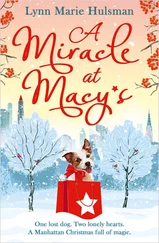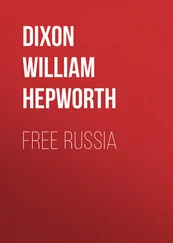Nikolai Nekrasov - Who Can Be Happy and Free in Russia?
Здесь есть возможность читать онлайн «Nikolai Nekrasov - Who Can Be Happy and Free in Russia?» весь текст электронной книги совершенно бесплатно (целиком полную версию без сокращений). В некоторых случаях можно слушать аудио, скачать через торрент в формате fb2 и присутствует краткое содержание. Год выпуска: 2005, Жанр: Поэзия, на английском языке. Описание произведения, (предисловие) а так же отзывы посетителей доступны на портале библиотеки ЛибКат.
- Название:Who Can Be Happy and Free in Russia?
- Автор:
- Жанр:
- Год:2005
- ISBN:нет данных
- Рейтинг книги:3 / 5. Голосов: 1
-
Избранное:Добавить в избранное
- Отзывы:
-
Ваша оценка:
- 60
- 1
- 2
- 3
- 4
- 5
Who Can Be Happy and Free in Russia?: краткое содержание, описание и аннотация
Предлагаем к чтению аннотацию, описание, краткое содержание или предисловие (зависит от того, что написал сам автор книги «Who Can Be Happy and Free in Russia?»). Если вы не нашли необходимую информацию о книге — напишите в комментариях, мы постараемся отыскать её.
Who Can Be Happy and Free in Russia? — читать онлайн бесплатно полную книгу (весь текст) целиком
Ниже представлен текст книги, разбитый по страницам. Система сохранения места последней прочитанной страницы, позволяет с удобством читать онлайн бесплатно книгу «Who Can Be Happy and Free in Russia?», без необходимости каждый раз заново искать на чём Вы остановились. Поставьте закладку, и сможете в любой момент перейти на страницу, на которой закончили чтение.
Интервал:
Закладка:
The sun's beating down
On the peasants' bare heads,
They are sweating and covered
With mud to the eyebrows,
Their limbs torn and bleeding
By sharp, prickly bog-grass! 320
"Does this picture please you?
You say that you suffer;
At least suffer wisely.
Don't use for a peasant
A gentleman's judgement;
We are not white-handed
And tender-skinned creatures,
But men rough and lusty
In work and in play.
"The heart of each peasant 330
Is black as a storm-cloud,
Its thunder should peal
And its blood rain in torrents;
But all ends in drink—
For after one cupful
The soul of the peasant
Is kindly and smiling;
But don't let that hurt you!
Look round and be joyful!
Hey, fellows! Hey, maidens! 340
You know how to foot it!
Their bones may be aching,
Their limbs have grown weary,
But youth's joy and daring
Is not quite extinguished,
It lives in them yet!"
The peasant is standing
On top of a hillock,
And stamping his feet,
And after being silent 350
A moment, and gazing
With glee at the masses
Of holiday people,
He roars to them hoarsely.
"Hey you, peasant kingdom!
You, hatless and drunken!
More racket! More noise!"
"Come, what's your name, uncle?"
"To write in the note-book?
Why not? Write it down: 360
'In Barefoot the village
Lives old Jacob Naked,
He'll work till he's taken,
He drinks till he's crazed.'"
The peasants are laughing,
And telling the Barin
The old fellow's story:
How shabby old Jacob
Had lived once in Peter, [22] Popular name for Petrograd.
And got into prison 370
Because he bethought him
To get him to law
With a very rich merchant;
How after the prison
He'd come back amongst them
All stripped, like a linden,
And taken to ploughing.
For thirty years since
On his narrow allotment
He'd worked in all weathers, 380
The harrow his shelter
From sunshine and storm.
He lived with the sokha, [23] The primitive wooden plough still used by the peasants in Russia.
And when God would take him
He'd drop from beneath it
Just like a black clod.
An accident happened
One year to old Jacob:
He bought some small pictures
To hang in the cottage 390
For his little son;
The old man himself, too,
Was fond of the pictures.
God's curse had then fallen;
The village was burnt,
And the old fellow's money,
The fruit of a life-time
(Some thirty-five roubles), [24] Three pounds.
Was lost in the flames.
He ought to have saved it, 400
But, to his misfortune,
He thought of the pictures
And seized them instead.
His wife in the meantime
Was saving the icons. [25] Holy pictures of the saints.
And so, when the cottage
Fell in, all the roubles
Were melted together
In one lump of silver.
Old Jacob was offered 410
Eleven such roubles
For that silver lump.
"O old brother Jacob,
You paid for them dearly,
The little chap's pictures!
I warrant you've hung them
Again in the new hut."
"I've hung them—and more,"
He replied, and was silent.
The Barin was looking, 420
Examining Jacob,
The toiler, the earth-worm,
His chest thin and meagre,
His stomach as shrunk
As though something had crushed it,
His eyes and mouth circled
By numberless wrinkles,
Like drought-shrivelled earth.
And he altogether
Resembled the earth, 430
Thought the Barin, while noting
His throat, like a dry lump
Of clay, brown and hardened;
His brick-coloured face;
His hands—black and horny,
Like bark on the tree-trunk;
His hair—stiff and sandy….
The peasants, remarking
That old Jacob's speech
Had not angered the Barin, 440
Themselves took his words up:
"Yes, yes, he speaks truly,
We must drink, it saves us,
It makes us feel strong.
Why, if we did not drink
Black gloom would engulf us.
If work does not kill us
Or trouble destroy us,
We shan't die from drink!"
"That's so. Is it not, sir?" 450
"Yes, God will protect us!"
"Come, drink with us, Barin!"
They go to buy vodka
And drink it together.
To Jacob the Barin
Has offered two cups.
"Ah, Barin," says Jacob,
"I see you're not angry.
A wise little head, yours,
And how could a wise head 460
Judge falsely of peasants?
Why, only the pig
Glues his nose to the garbage
And never sees Heaven!"
Then suddenly singing
Is heard in a chorus
Harmonious and bold.
A row of young fellows,
Half drunk, but not falling,
Come staggering onwards, 470
All lustily singing;
They sing of the Volga,
The daring of youths
And the beauty of maidens …
A hush falls all over
The road, and it listens;
And only the singing
Is heard, broadly rolling
In waves, sweet and tuneful,
Like wind-ruffled corn. 480
The hearts of the peasants
Are touched with wild anguish,
And one little woman
Grows pensive and mournful,
And then begins weeping
And sobs forth her grief:
"My life is like day-time
With no sun to warm it!
My life is like night
With no glimmer of moon! 490
And I—the young woman—
Am like the swift steed
On the curb, like the swallow
With wings crushed and broken;
My jealous old husband
Is drunken and snoring,
But even while snoring
He keeps one eye open,
And watches me always,
Me—poor little wife!" 500
And so she lamented,
The sad little woman;
Then all of a sudden
Springs down from the waggon!
"Where now?" cries her husband,
The jealous old man.
And just as one lifts
By the tail a plump radish,
He clutches her pig-tail,
And pulls her towards him. 510
O night wild and drunken,
Not bright—and yet star-lit,
Not hot—but fanned softly
By tender spring breezes,
You've not left our peasants
Untouched by your sweetness;
They're thinking and longing
For their little women.
And they are quite right too;
Still sweeter 'twould be 520
With a nice little wife!
Cries Ívan, "I love you,"
And Mariushka, "I you!"
Cries Ívan, "Press closer!"
And Mariushka, "Kiss me!"
Cries Ívan, "The night's cold,"
And Mariushka, "Warm me!"
They think of this song now,
And all make their minds up
To shorten the journey. 530
A birch-tree is growing
Alone by the roadside,
God knows why so lonely!
And under it spreading
The magic white napkin,
The peasants sit round it:
"Hey! Napkin enchanted!
Give food to the peasants!"
Интервал:
Закладка:
Похожие книги на «Who Can Be Happy and Free in Russia?»
Представляем Вашему вниманию похожие книги на «Who Can Be Happy and Free in Russia?» списком для выбора. Мы отобрали схожую по названию и смыслу литературу в надежде предоставить читателям больше вариантов отыскать новые, интересные, ещё непрочитанные произведения.
Обсуждение, отзывы о книге «Who Can Be Happy and Free in Russia?» и просто собственные мнения читателей. Оставьте ваши комментарии, напишите, что Вы думаете о произведении, его смысле или главных героях. Укажите что конкретно понравилось, а что нет, и почему Вы так считаете.











